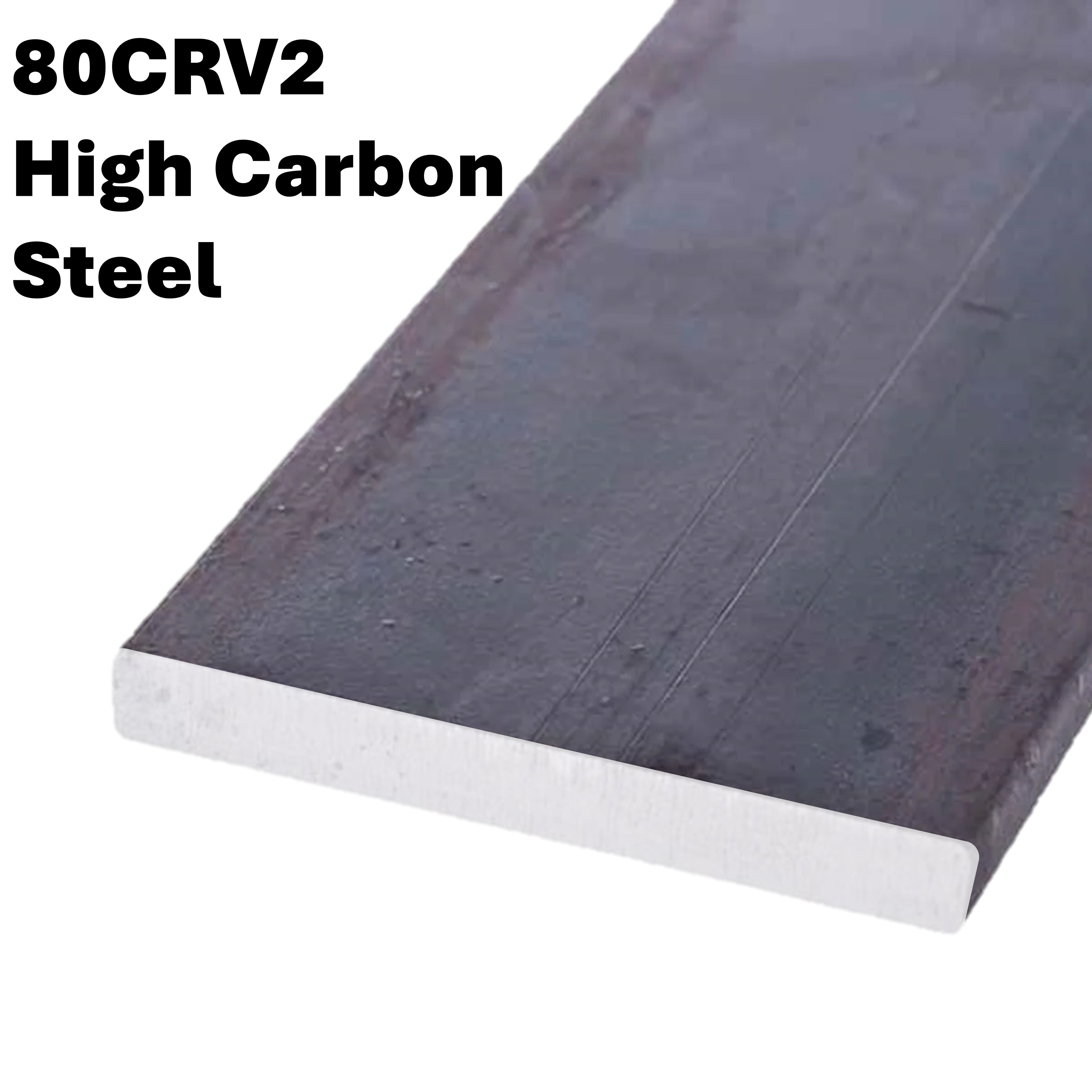80CRV2 - High Carbon Blade Steel Flat Bars
This steel is manufactured in Germany and is supplied annealed. It has a smooth surface and is soft in its annealed state, making it easy to cut, grind, drill, and file. Thickness may vary slightly from batch to batch.
80CrV2 High Carbon Blade Steel is a tough, high-carbon steel known for its excellent toughness and wear resistance. It is often compared to 5160 but with the addition of vanadium, which improves grain refinement and increases toughness. The combination of carbon, chromium, and vanadium in its composition makes 80CrV2 an excellent steel for larger, hard-use blades such as machetes, axes, and swords, but it also performs well in smaller knives. It is widely favored by custom knifemakers for its ease of heat treatment and ability to hold a fine edge.
Composition
- Carbon – 0.80%
- Chromium – 0.50-0.70%
- Manganese – 0.40-0.70%
- Vanadium – 0.15-0.25%
- Silicon – 0.25%
- Phosphorus – 0.03% max
- Sulfur – 0.02% max
- Iron – Balance
Performance Characteristics
-
Toughness 9/10 – 80CrV2 is well-known for its excellent toughness, making it highly resistant to chipping and cracking under heavy use. It excels in larger blades, such as choppers and survival knives, where impact resistance is critical. Its toughness is one of the best among carbon steels.
-
Edge retention 6/10 – While 80CrV2 may not hold an edge as long as modern high-end stainless steels, it still offers good edge retention due to its carbon content. It strikes a good balance between ease of sharpening and edge durability, making it ideal for knives that see frequent use and require regular maintenance.
-
Corrosion resistance 2/10 – Like most high-carbon steels, 80CrV2 is prone to rust and corrosion without proper care. Regular maintenance, such as oiling, is essential to prevent rust, particularly in humid or wet conditions. It is not stainless and requires more care than alloyed steels, but its toughness makes it worth the tradeoff.
Recommended Heat Treatment
- Heat blade to 800-850°C (non-magnetic stage)
-
Quench immediately in medium-speed oil like canola or parks 50
- Temper at 180-210°C for 2 hours, twice, depending on the desired hardness
Note: 80CrV2 is relatively easy to heat treat, even for novice bladesmiths, and responds well to both simple and more advanced heat treatments. For maximum toughness, lower austenitizing temperatures combined with careful tempering will yield great results, especially for large blades.
Approximate As-Quenched Hardness Before Tempering:
- 800-850°C followed by oil quench – 63-65HRC
Recommended Working Hardness
57-61HRC
















